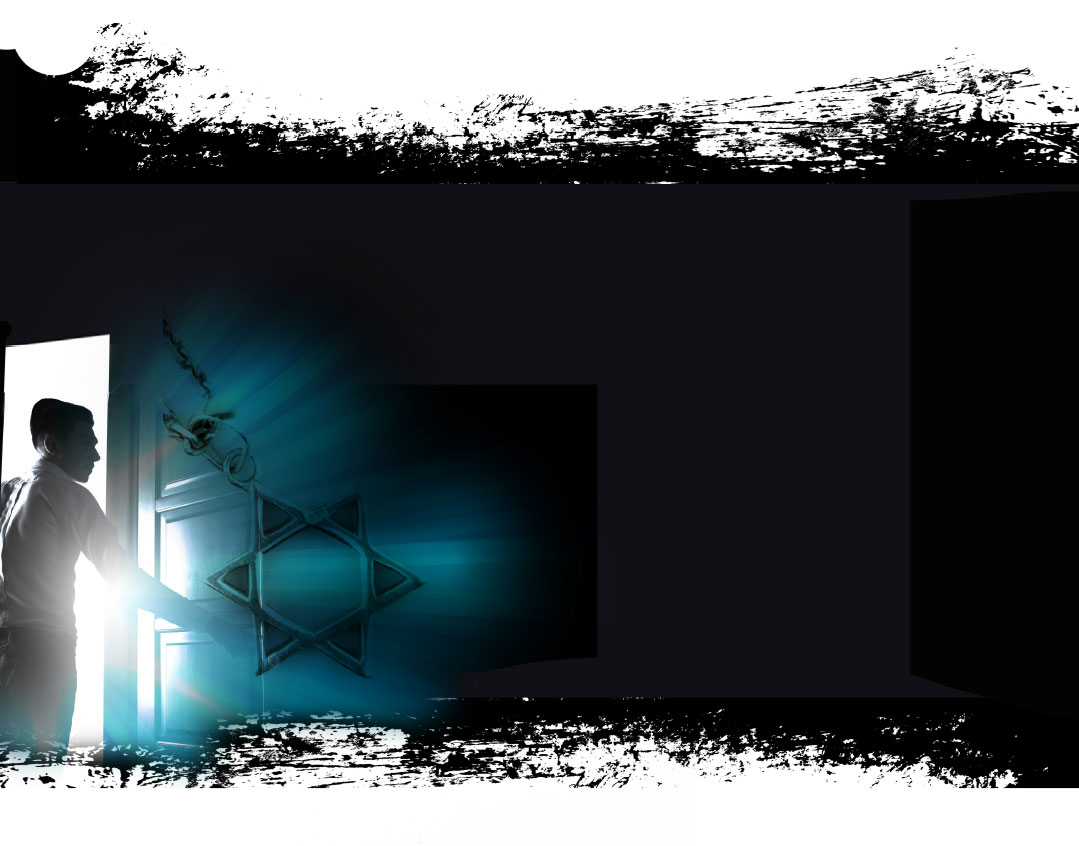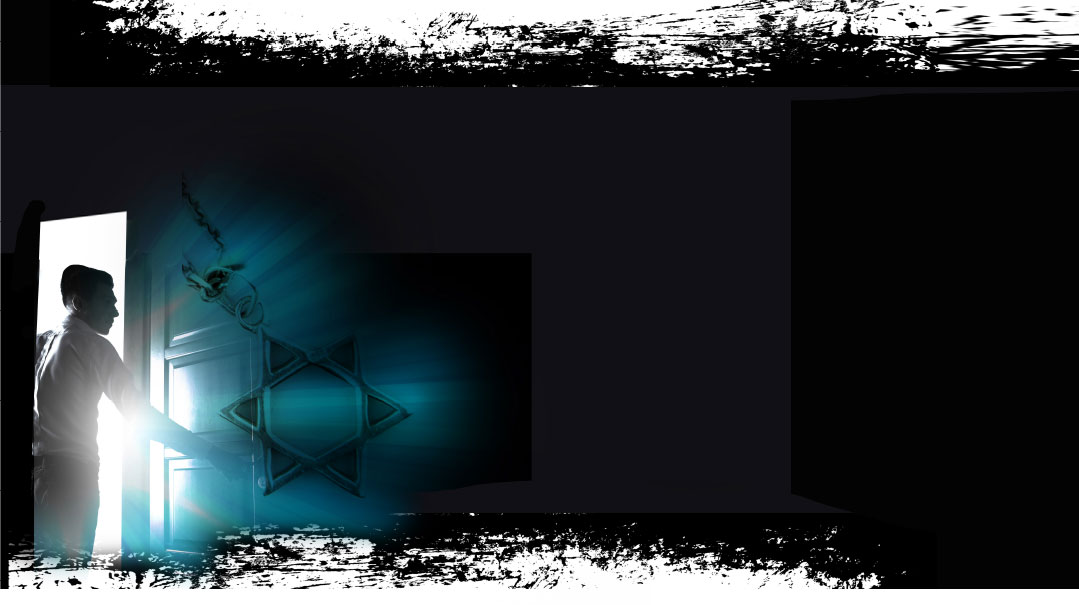Send Them Off as Jews: Chapter 4
| December 9, 2020Why are people so anxious to find out when someone will die?

I know a doctor who can smell when someone is going to die.
No, she doesn’t sniff the air and announce your fate as you walk by. And there is nothing magical about it. She explained to me that in the moments or even hours before someone’s soul leaves, a smell fills the room that indicates that the end is near. I have heard it theorized that it is the result of cell breakdown; perhaps it is something else entirely. She will occasionally let us know that a patient seems to be imminent, and she is usually right.
Whatever the explanation for it, I do know one thing: I can’t smell it. I’ve asked her to teach me, which she has tried to do. But I’ve never been able to detect it.
There are other indications that a person’s neshamah will soon leave this world, and for some of them I have nothing but a spiritual explanation. Two sisters who sat by their mother just before she died told me that they distinctly smelled the scent of an esrog in the room — a whiff of Gan Eden, perhaps. And there is certainly reference to this possibility in the more mystical sources of the Torah.
But these unusual indications of a person’s passing serve to prove the opposite point: it is nearly impossible to predict when someone will pass away. Often, when someone enters hospice, their family is anxious to know how long the person can be expected to live. Almost always, people who work in hospice will say that they have no idea. They’ve seen people die much more quickly than expected and seen people live for much longer than anybody anticipated.
It’s not a new question. Dovid Hamelech himself wanted to know exactly when he would die, and Hashem refused to tell him, other than to say that he would die on Shabbos. It seems that our desire to know and the impossibility of knowing is simply part of the way Hashem designed the world.
Why are people so anxious to find out when someone will die?
On a simple level, we want to know because we crave certainty. Faced with the most mysterious experience of life, this is one way for us to feel some illusion of control. For people who have been caring for a loved one over a long and stressful period, they might want to have a sense of how much longer they will have the noble but taxing privilege of caregiving. They might feel less anxious about the planning that must take place if they have some sort of timeframe. On a deeper level, we want to make sure that our spiritual affairs are in order.
But this something we can never really know, and it’s not an accident. Chazal say, “Shuv yom echad lifnei misasecha — Repent one day before you die.” The famous understanding of this is that since nobody knows when they will die, we must do teshuvah every day. But there is another layer here. The fact that we do not know the day of our death is by design. None of us — not even someone with a terminal illness — can save teshuvah for the end. It is supposed to be a consistent part of life.
Rabbi Goldman was the elderly patriarch of a large and beautiful family. He was dying of cancer, and his family asked me the frum variation of this question: When is it time to say Vidui?
For some reason, we have an aversion to saying Vidui before the very end. I told the Goldmans what I always tell families: we can’t predict how long anybody will live, and your father might pass away sooner than you expect. If it were me, I would say Vidui now. If you end up saying it again in five days, no harm done. But you’re better safe than sorry.
They were a little skeptical, but they took my advice and said all the appropriate tefillos with him that day. Rabbi Goldman passed away before the next morning. Every time I see them, they thank me for giving them the chance to do this mitzvah with their father.
It should be noted that there is legitimate concern about making the patient upset by saying Vidui. The Shulchan Aruch is quite clear that we may not do anything that would cause a sick person to become upset at the thought that there is no hope for him or her, as this itself might cause them to die sooner. One should certainly not say Vidui or similar tefillos without considering how it will affect the patient. But there are ways to address this.
In many siddurim, there is a poignant declaration that one is supposed to say before saying Vidui. We acknowledge, on behalf of the choleh, that life and death are in Hashem’s hands. We assure him that many people have said Vidui and then recovered, but in the event that he does not recover, his death will provide a kapparah for all his aveiros. We must not approach Vidui without sensitivity, but neither should we allow him to miss the opportunity.
In the old Bikur Cholim hospital in Yerushalayim, there were hardly any private rooms, if any; patients were grouped together in large, open wards. Twice a week, someone from the Old Yishuv would come into the wards and recite a public Vidui for all the patients together. The logic was simple and beautiful. They did not want to frighten any individual patients by saying Vidui just for them, but neither could they afford to let someone leave this world without teshuvah. Instead, they said it for everyone at once. No doubt, some of the patients heard Vidui a dozen times. But nobody waited until it was too late.
There is another spiritual phenomenon that indicates that someone is on the cusp of leaving this world. It is described by Chazal, and people who work in hospice recognize it as a familiar occurrence. Chazal tell us that when someone leaves this world, he is greeted and escorted to the Olam HaEmes by people who were important to him in lifetime: his parents, or, if he is a ben Torah, his rebbeim come to greet him. The Gemara even tells us that when someone has made a special effort to learn the Torah of a talmid chacham from a previous generation, that talmid chacham will come to greet him as he enters the World to Come.
But even for those who have never learned Torah, there seems to be something similar that takes place. It is very common for people to begin having visions of people who have already passed on. It is especially common for people to see visions of their mother. While this might sound upsetting, many people find it comforting, as though it is a message that someone will be looking after them in Gan Eden — which, presumably it is.
This, too, is another reminder that we do not have to hide from Vidui. When there are signs that the end is near, we should remember that we are going somewhere good, that there is a time for teshuvah, for preparing for what is to come. We should remember that Hashem has made this a part of life, no less than life itself. And even if we cannot smell it, we can make the best use of every breath of life.
Rabbi Daniel Rose is the rabbi at Bnai Jacob Shaarei Zion Congregation in Baltimore, Maryland. He used to serve as the chaplain and director of Jewish Hospice Services for Seasons Hospice and Palliative Care of Maryland. He is also the author of Building Eternity: A New Perspective on the Meaning of Marriage (Menucha Publishers).
(Originally featured in Mishpacha, Issue 839)
Oops! We could not locate your form.



